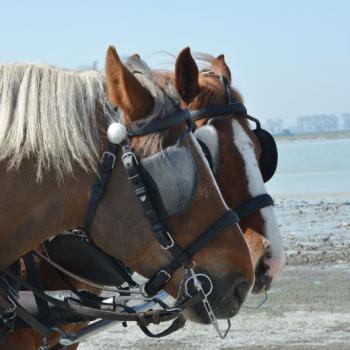A silence has settled over my neighborhood. It has grown much quieter than it was two years ago. Most of the families with children are gone, in many cases—too many—because they could not afford to keep their homes. People aren't having parties any more. That's particularly noticeable during the summer; it used to be hard to sleep with the windows open on a Saturday night. This is a squarely middle-class neighborhood, but even the discreet entertainments of the middle class were a bit noisy. I never thought I would miss them.
The family next door—tenants of a landlord who is now in some stage of foreclosure—moved out in early 2010. I remember the timing because the apologetic census-taker who came around in May asked me if I knew what was going on with the empty house next door. I knew mainly that the tenants had moved to another city. The landlord told them the house would no longer be maintained, and forgave the balance of their lease on condition that they move out. The mowing had stopped about two months before that; it resumed again earlier this year, a signal to those of us still living here that a bank had finally made some kind of decision. But the house, like so many others, sits empty and unvisited.
For a long time, there were always to six to eight houses for sale within a two-block radius from me. Most of the sellers finally gave up. Fewer houses are unoccupied today than two years ago, but the community of established, well-known neighbors has faded. I'm not sure who lives in most of the houses now. My neighbors across the street disappeared with their RV about a month ago. I hope they are just on vacation, but I rather doubt it.
The couple on the other side of me is mostly invisible these days. They're extremely grateful that they both have jobs, even if the husband works only three days a week. At a neighborhood watch meeting a few months ago—the first our little neighborhood has held—we learned from the police representative that unemployment in our valley communities is around 25 percent.
That's not surprising, considering that every time I get out on the roads, I can feel how much our population has declined in the last few years. The traffic has thinned dramatically, even during rush hour. The population of this part of southern California—the "Inland Empire" between Los Angeles and Palm Springs—saw rapid growth between 1990 and 2006, but has been decimated by the housing collapse and the recession. Much of the economic growth here was generated by the housing industry. Since 2007, our little mall has lost two of its three "anchor" retailers. Smaller businesses have departed in droves. National chain restaurants have had to close for lack of patronage.
Even the Wal-Mart has at least 25 percent less stock than it once did, and is out of something every time I make a visit for household supplies. The store was once hard to navigate, with all its towering center-aisle displays, but that's no longer the case. Like the city streets, it now offers the shopper much more elbow room. The thousands of empty houses in the county mean fewer customers for every kind of business; even the Nissan dealership that once serviced my SUV closed its doors in 2008.
In some places, the empty houses are becoming a crime hazard. Whole developments are all but abandoned, with weeds clogging the foundations of half-finished houses and coyotes squeezing in and out through flimsy perimeter fences. Other impacts from the housing collapse are indirect. The fire station nearest to me closed last year because the city could no longer afford it. Two of the area's three new elementary schools are on the budgetary chopping block; they opened in 2006, but their attendance has declined every year since. I have never lived in an area suffering such an abrupt, precipitous decline. Nor have most Americans alive today.
What I didn't count on was the silence. In some ways it's pleasant, reminding me of the carefree, toe-stretching days of childhood, when life didn't crowd in close the way it has in most of my adult years. It feels like inhabiting a state of suspended animation—like a chance of some kind, a sort of collective pause to reevaluate life, zero out expectations, and make fresh decisions. In this peculiar, twilit quiet, I don't see permanent loss and decline, but breathing space and opportunity. The empty dwellings are waiting to be claimed, to house families and host cook-outs again on summer evenings. As in so much of America, there is good land here. There are good people eager to work.
What separates them from each other is a body of sclerotic political ideas, translated decades ago into policies that are now failing on a colossal scale. But in the social eruptions and fiscal dead ends we face today, I perceive the outlines of how God deals with individuals when we need correction. We are often at our most fretful and unattractive when God requires us to face our worst habits or mistakes. Societies may be as well: if things did not seem so bad at the moment, they would probably be worse.
We can take heart from God's way with our personal failings, knowing that true restoration comes not when things go back to the way they were, but when enough has changed.
8/14/2011 4:00:00 AM





